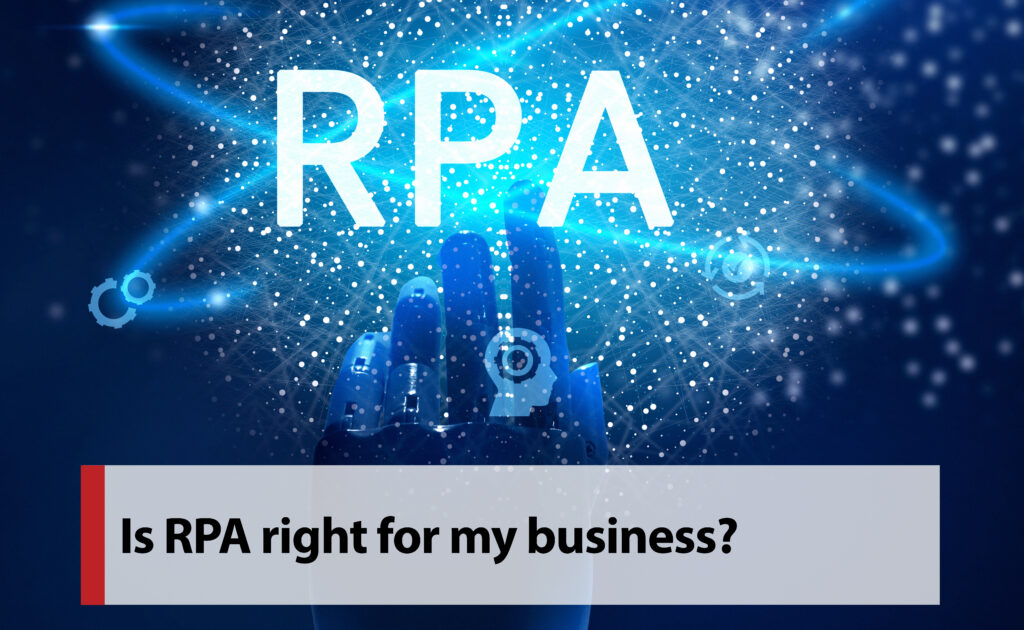
The last few years have seen a significant increase in the popularity of automation solutions across a wide range of industries. In fact, Robotic Process Automation – RPA – is considered “transformational technology”, because implementing this intelligent software can completely transform your business.
Businesses from many industries have been using RPA as part of their digital transformation, and it is no surprise why. A significant decrease in error brings an increase in speed and efficiency, massive cost-saving means a boost in ROI, and getting rid of dull, time-consuming, computer-based tasks elevates productivity and leads to higher levels of employee satisfaction.
At this point, there can only be one reason why your business has not yet invested in RPA solutions – you’re not convinced that RPA is right for your business.
Sure, not every business is well suited for RPA solutions, and so we are here to help you decide if your business can benefit from implementing this transformational technology.
If you’re asking yourself, “Does my business need RPA?” here are three questions to consider:
1. Does your business need to reduce costs?
RPA uses intelligent software technology, or ‘robots’, to automatically complete rule-based and trigger-driven digital tasks that once required human action. This means that the software allows organizations to achieve much more with the same amount of staff.
In fact, if implemented correctly, your business can anticipate a reduction in the cost of existing manual operations, plus the recovery of up to 100% of the investment within 6 – 9 months after implementation.
2. Are you looking to scale your business?
RPA robots can be programmed to perform important business tasks at much greater speeds, with complete precision, reliability, and 100% accuracy every time.
Using RPA software to automate critical business processes allows for the flexibility necessary to handle any workload, accommodating even unexpected increases in volume. This means that your business will be able to confidently scale without the fear of not being able to keep up with demand.
3. Are you looking for innovative ways to improve job satisfaction and employee morale?
Business processes that are best suited for automation technology are rule-based and trigger-driven. These tasks, although crucial, are typically time-consuming, monotonous, and dull. Indeed, these repetitive and tedious digital activities require little creativity or deep thinking from employees.
RPA software can be implemented to complete these manual computer-based tasks, freeing up your workforce to focus their time and energy on meaningful human tasks, not robotic ones. When employees no longer need to waste valuable brainpower on mundane digital tasks, productivity will increase as will overall employee satisfaction.
If the above points have convinced you that your business can benefit from this transformational technology, the next step is to identify if your business process is best suited for RPA solutions.
Use our RPA Feasibility Calculator to discover if your business process is suitable to be automated using RPA technology, and get ready to take your business to new heights.
